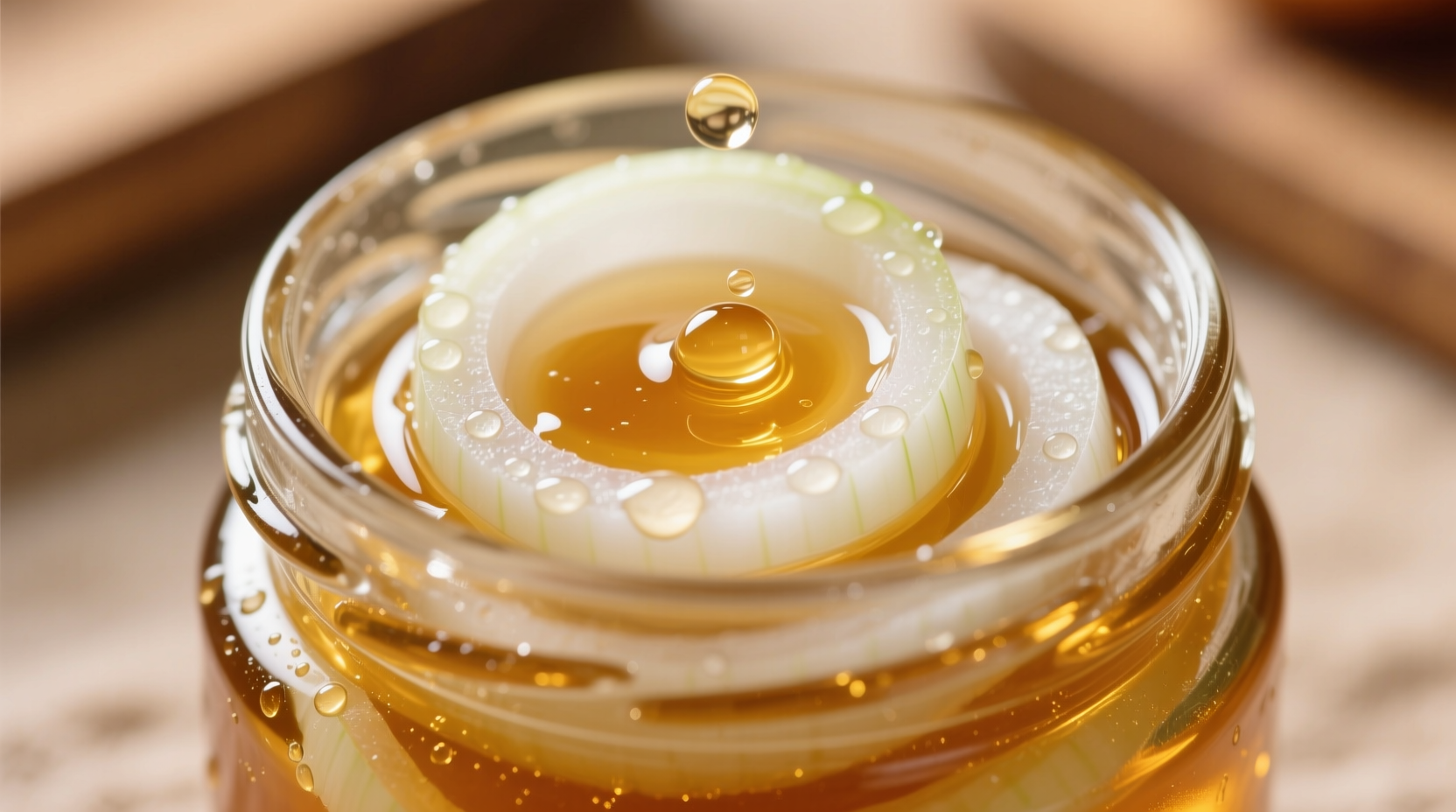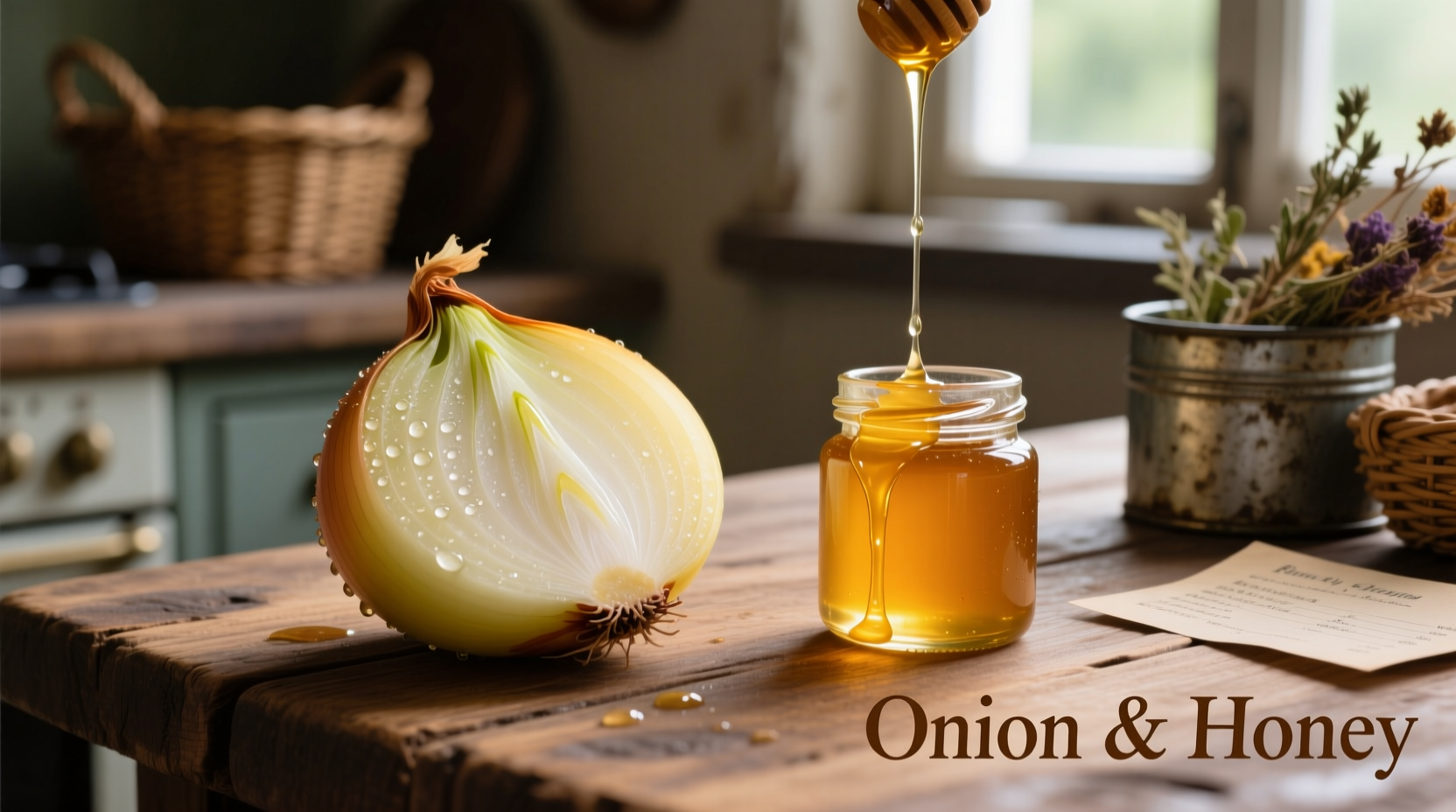For generations, people have turned to onion and honey as a simple home remedy when cold symptoms strike. This traditional combination leverages honey's proven soothing properties for irritated throats and onion's rich antioxidant profile. Recent clinical studies validate honey's effectiveness as a cough suppressant, particularly for children over age one, making this centuries-old remedy more than just folklore. When prepared correctly, this natural mixture can provide comforting relief during cold and flu season without artificial ingredients.
A Timeless Remedy: Historical Use of Onion and Honey
The pairing of onion and honey dates back to ancient medicinal practices across multiple civilizations. Historical records show Egyptian physicians documented honey's antibacterial properties as early as 2600 BCE, while Greek physician Hippocrates recommended honey and onion preparations for respiratory ailments around 400 BCE. During the Middle Ages, European herbalists commonly prescribed "onion syrup" made with honey for treating coughs and congestion. This tradition continued through colonial America, where settlers relied on onion and honey mixtures when access to professional medical care was limited.
| Era | Documented Use | Source |
|---|---|---|
| Ancient Egypt (2600 BCE) | Honey used in medicinal preparations | Ebers Papyrus medical texts |
| Ancient Greece (400 BCE) | Hippocrates prescribed honey-onion mixtures for respiratory issues | Hippocratic Corpus |
| Medieval Europe (12th century) | "Onion syrup" recommended in herbal manuscripts | Trotula of Salerno's medical writings |
| Colonial America (18th century) | Household remedy for colds and coughs | Early American medical journals |
What Science Says About Onion and Honey Benefits
Modern research provides insight into why this traditional remedy has endured. According to a 2014 study published in the Cochrane Database of Systematic Reviews, honey significantly reduces cough frequency and severity in children compared to placebo. The American Academy of Pediatrics recognizes honey as an effective cough remedy for children over 12 months, noting it works as well as some over-the-counter medications without potential side effects.
Onions contain quercetin, a flavonoid with antioxidant and anti-inflammatory properties. While limited direct research exists on onion-honey mixtures specifically, onions' sulfur compounds may help break up mucus. When combined with honey's demulcent properties that coat and soothe irritated throat tissues, this creates a synergistic effect that explains its historical popularity as a respiratory remedy.

How to Prepare Onion and Honey Remedy Properly
Creating an effective onion and honey mixture requires proper technique to maximize benefits while ensuring safety:
- Peel and thinly slice one medium yellow onion (about 1 cup)
- Place slices in a clean glass jar
- Pour raw, unprocessed honey over onions until fully covered
- Cover jar and let sit at room temperature for 8-12 hours
- Strain the liquid (now golden-colored) into a clean container
The resulting syrup contains the beneficial compounds drawn from the onions. For best results, take 1-2 teaspoons as needed for cough relief. Children over 1 year can take half-teaspoon doses. Always use raw honey for maximum enzymatic benefits, and store the mixture in the refrigerator for up to two weeks.
Culinary Applications Beyond Remedies
Beyond medicinal uses, onion and honey combinations feature prominently in global cuisines. In Middle Eastern cooking, caramelized onions with honey create sweet-savory glazes for meats. French cuisine uses honey and shallots (a close onion relative) in classic reductions. The natural sugars in honey balance onions' sharpness, creating complex flavor profiles that enhance roasted vegetables, salad dressings, and meat marinades.
When using this combination in cooking, consider these applications:
- Glaze for roasted root vegetables
- Base for vinaigrettes and salad dressings
- Marinade component for poultry and pork
- Flavor enhancer for soups and stews
Important Safety Considerations and Limitations
While generally safe, onion and honey has important limitations. The Centers for Disease Control specifically warns against giving honey to infants under 12 months due to botulism risk. This remedy should never replace professional medical care for persistent symptoms, high fevers, or breathing difficulties.
Consider this remedy appropriate for:
- Mild coughs lasting less than 10 days
- Seasonal allergy-related throat irritation
- Supporting general immune function during cold season
Consult a healthcare provider if:
- Symptoms persist beyond 10-14 days
- Experiencing high fever (over 102°F/39°C)
- Having difficulty breathing
- Coughing up blood or unusual colored mucus
When Traditional Remedies Meet Modern Medicine
Integrating traditional knowledge with contemporary medical understanding creates the most effective approach to wellness. While onion and honey provides comforting relief for minor respiratory symptoms, it works best as part of a comprehensive approach that includes proper hydration, rest, and when necessary, professional medical care. This balanced perspective honors historical wisdom while respecting the boundaries of what natural remedies can realistically accomplish.











 浙公网安备
33010002000092号
浙公网安备
33010002000092号 浙B2-20120091-4
浙B2-20120091-4